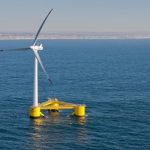PIGS winning out over rest of Europe
Portugal, Italy, Greece and Spain were dubbed the PIGS a decade ago when their bankruptcy almost brought the European Union project to its knees and resulted in a series of debt reschedules and a round of bailouts worth billions between 2011 and 2013.
At the time the PIGS were economies in recession, were not that competitive, with huge deficits and a high level of private indebtedness.
Now, the situation is different, according to an analysis from Vicente Neves, published in the Spanish newspaper ‘El Economista’ who says that although countries like Portugal still have significant vulnerabilities, “many of the weaknesses in their economies have been resolved” and today the countries in central Europe are facing a much more complex situation, at leas for the short term.
The IMF, for example, has put overall growth forecasts in Southern Europe higher than that of northern European neighbours at around 2%, and 2.6% for Portugal for 2023.
One of the reasons in Portugal’s case for this stronger growth is the success of tourism since Portugal is not so dependant on industry and cheap gas.
The problem for Germany, for example, is that it is finding it difficult to find an energy alternative that would enable it to maintain its position as the most powerful economic driver in the European Union without ‘raters’.
“The global industrial cycle has been extremely weak because Chinese growth continues to be sluggish, global stakes have been extremely high, and US consumers have restricted their purchases of goods after a shopping splurge following the pandemic. Manufacturing industry is the lion’s share of Gross Added Value in Germany – more than any other European economy – and this has been hard hit from the weak global industrial cycle and its strong exposure to Russian energy has accentuated these weaknesses compared to the rest of the Euro Zone.”
On the other hand “the Mediterranean bloc withstood the pandemic and energy crisis and is now performing surprisingly well, despite higher interest rates”.
As to Portugal, which was never very reliant on Russian gas and oil, “the combination of reforms, strict budgetary housekeeping, and a supportive monetary policy from the ECB has enabled some convergence in terms of competitiveness with stronger northern European economies in recent years.










